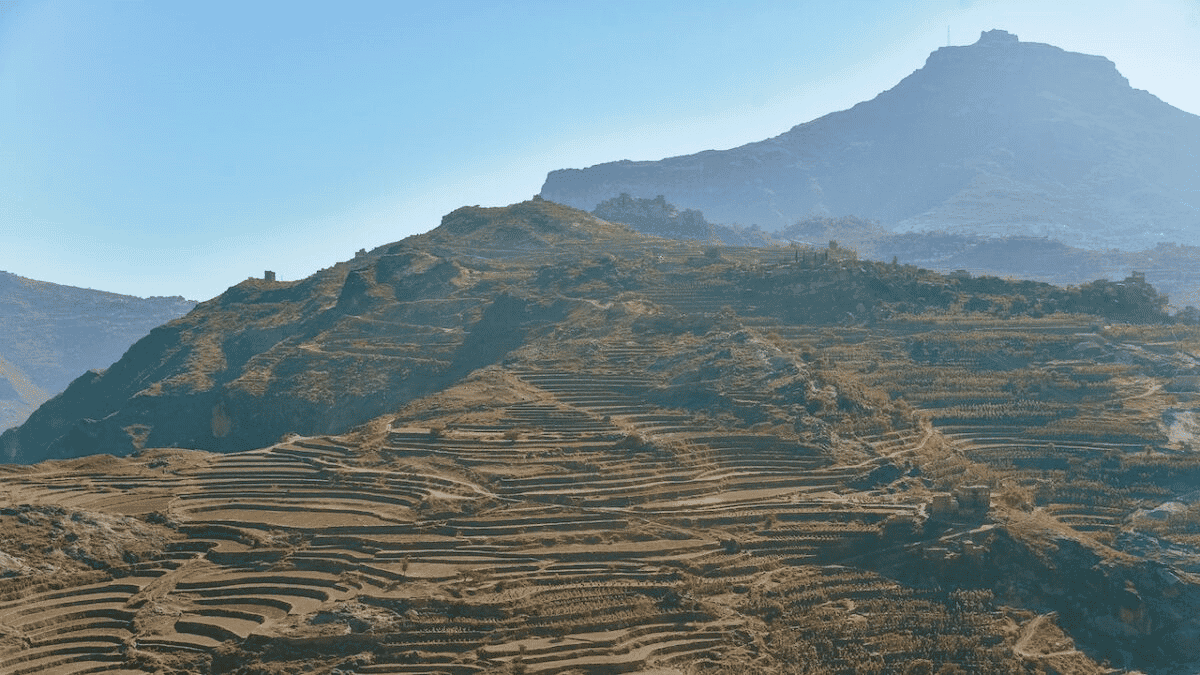
Yemen, located at the southern tip of the Arabian Peninsula, borders Saudi Arabia and Oman. The old city of Sana'a, Yemen's capital, is a UNESCO World Heritage site, with its streetscape of stone and sun-dried brick buildings often described as a scene from "Arabian Nights." Known as the birthplace of the Arabs, Yemen flourished in ancient times as a key trading post along the "Maritime Silk Road" connecting India, East Africa, and the Mediterranean. The country was also a major producer of spices and agricultural products, earning it the admiration of Europeans who referred to it as "Arabia Felix", or "Happy Arabia." Yemen's topography, characterized by steep rocky mountains ranging from 2,000 to 3,000 meters in height, stands in stark contrast to the desert landscapes typical of many Middle Eastern countries. These natural fortresses helped Yemen repel foreign invasions and colonial rule. This geographical isolation has fostered a strong sense of self-reliance, tribal cohesion, and a tendency towards exclusivity. Even today, many regions remain largely independent from central government influence, preserving relatively intact tribal social structures. The Yemeni economy relies heavily on oil and natural gas, though its production and export volumes pale in comparison to neighboring oil-rich countries. Despite economic liberalization efforts since the mid-1990s, the long-standing government-led economic system has contributed to Yemen having the lowest GDP per capita in the Middle East. In stark contrast to its oil-wealthy neighbors' rapid modernization, Yemen is often referred to as the "poorest country in the Arab world." Yemen's strict adherence to Islamic precepts reinforces conservative social norms, with men expected to be the primary breadwinners and women to play supportive roles within the household. A strong sense of proper conduct, deeply rooted in Islamic teachings, underpins the national character that places high value on pride and honor.

Yemen played a pivotal role in the history of coffee. In the 16th century, coffee trees were brought from Ethiopia to Yemen. In the 17th century, Dutch merchants began exporting coffee from Yemen to Europe, from where it spread around the world. The port of Mokha, located across the Red Sea from the African continent, is recognized as the world's first port to export coffee. This historical significance is why coffees from Ethiopia and Yemen are collectively known as "Mocha." In essence, Yemen represents the birthplace of the global coffee trade. Coffee production in Yemen is primarily concentrated in the northwestern part of the country. Due to high rainfall, coffee is cultivated on terraced hillsides, creating a landscape unique to Yemen. Among the notable production areas are Bani Matar, which produces the Mocha Mattari variety, and Haraz, known for its Mocha Harazi. Both of these regions are located near Jabal An-Nabi Shu'ayb, a mountain close to the capital city of Sana'a.
Warehoused
Mokha not Mocha! 2021/22
Producer/Curator:
Abdulrahman Saeed
The word “Mokha” may stir a feeling of fond nostalgia and romance among many coffee lovers. That’s the name of a Yemeni port that exported coffee to the world for the first time. It is also a blanket term that describes Ethiopian and Yemeni coffee. The beverage “mocha” was once shrouded in a veil of mystery, a…Read More
476roasters are interested
11roasters purchased
Sample Request :
Start
End
Pre-oder :
Start
End
Price
68 USDFOB/kg
Quantity
0/0 bags (15kg)
Samples
Out of Stock
-
Price
68 USDFOB/kg
Quantity
0/0 bags (15kg)
Samples
Out of Stock
-
Price
68 USDFOB/kg
Quantity
0/0 bags (15kg)
Samples
Out of Stock
-
Price
68 USDFOB/kg
Quantity
0/0 bags (15kg)
Samples
Out of Stock
-
Price
68 USDFOB/kg
Quantity
0/0 bags (15kg)
Samples
Out of Stock
-
Price
65 USDFOB/kg
Quantity
0/0 bags (15kg)
Samples
Out of Stock
-
Price
65 USDFOB/kg
Quantity
0/0 bags (15kg)
Samples
Out of Stock
-
Price
65 USDFOB/kg
Quantity
0/0 bags (15kg)
Samples
Out of Stock
-